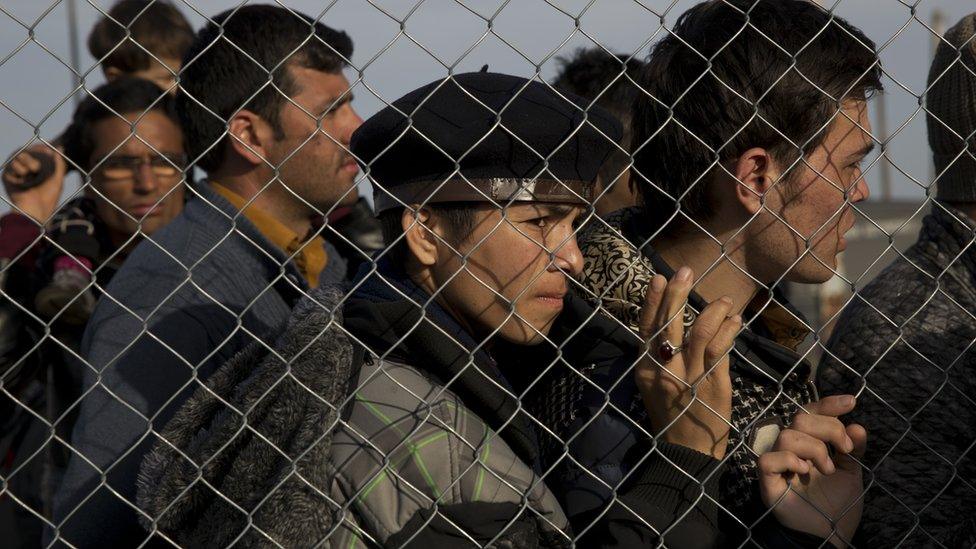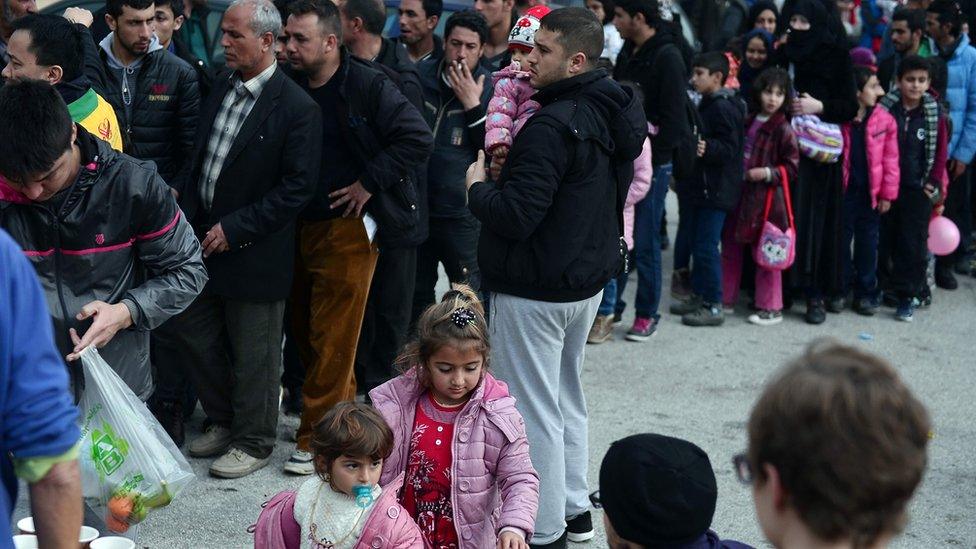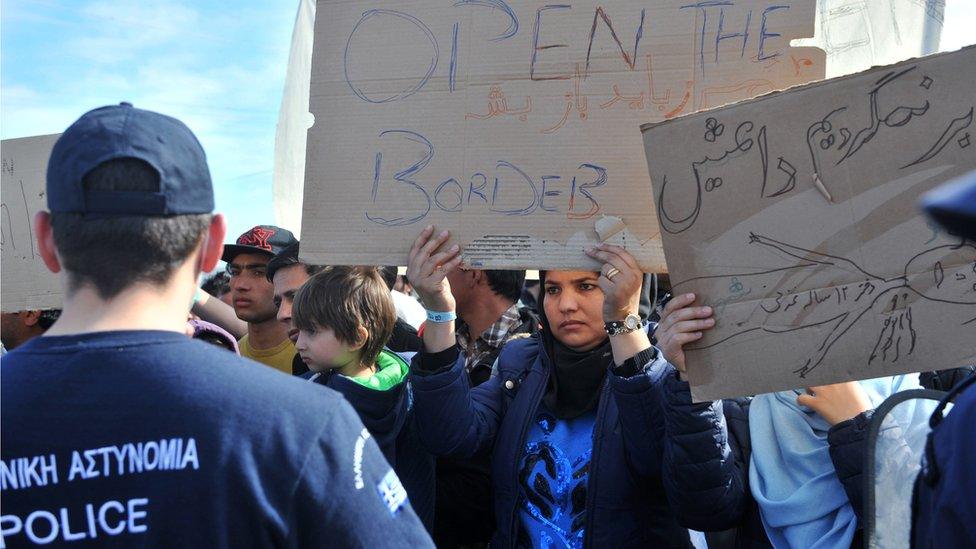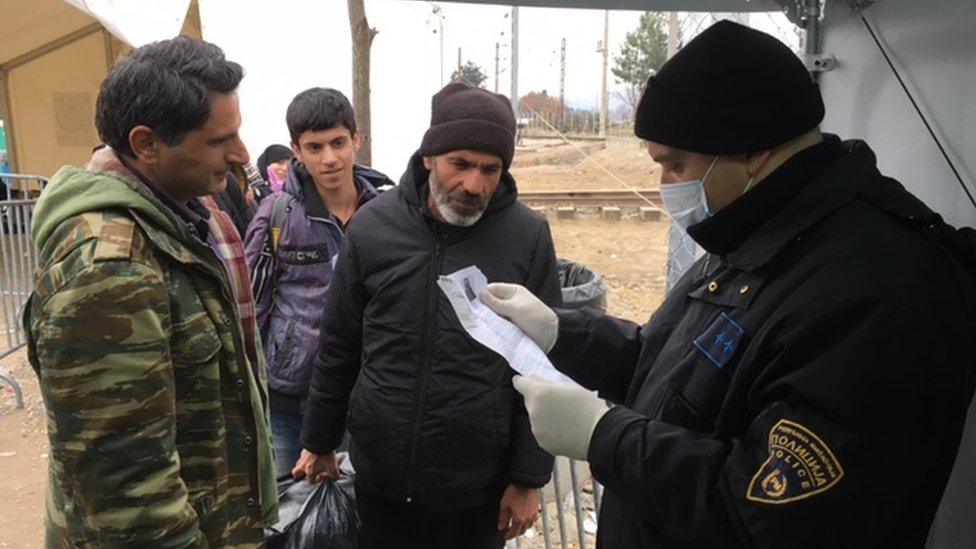Migrant crisis: Germany sends home rejected Afghans
- Published

Afghans have been barred from entering Macedonia as European countries try to cut asylum numbers
A special flight from Germany carrying 125 deported Afghans has arrived in Kabul, in a sign that the Berlin government is taking steps to reduce the number of people seeking asylum.
Afghans have become Germany's second largest group of asylum seekers, after Syrians, with 154,000 arriving in 2015.
Those arriving in Kabul all left voluntarily, German officials said.
Hope of securing asylum in Europe has become increasingly difficult for Afghans in recent days.
A backlog has developed of migrants arriving in Greece, as large numbers continue to cross from Turkey to the Aegean islands
Macedonia has stopped allowing Afghans across its border with Greece, giving access to only Syrians and Iraqis, leaving thousands of people stranded since Monday.
German Interior Minister Thomas de Maiziere said the return of Afghans was part of its commitment to help rebuild their country. "This is also key to a successful fight against the root cause of people fleeing," he said.
Almost 102,000 people have arrived on the Greek islands from Turkey since the start of 2016. According to the UN, external:
44% are from Syria
29% from Afghanistan
17% from Iraq
Macedonia insists its decision to exclude Afghans was a response to actions taken by other countries.
"Decisions have been made in Croatia and Serbia to let no more Afghans over their borders who cannot prove they come from conflict areas," Macedonian Foreign Minister Nikola Poposki told Germany's Bild newspaper.
That move appears to have followed a daily limit imposed by Austria last Friday of 80 asylum applications for people arriving on its southern borders. It said it would allow a maximum of 3,200 migrants and refugees to continue their journey across the country.

At least 12,000 people have been stranded in Greece and more are on their way
Greece has complained that the latest measures have sparked a "mini humanitarian crisis". The Austrian move was condemned by the European Commission as incompatible with human rights conventions.
Some 12,000 migrants and refugees are now stuck in Greece and busloads of people are now being sent to a camp outside the northern city of Thessaloniki.
The government in Vienna hosted a meeting of interior ministers from the region on Wednesday, angering the Greeks who were not invited and complained of an "unfriendly action".

- Published22 February 2016

- Published12 February 2016
